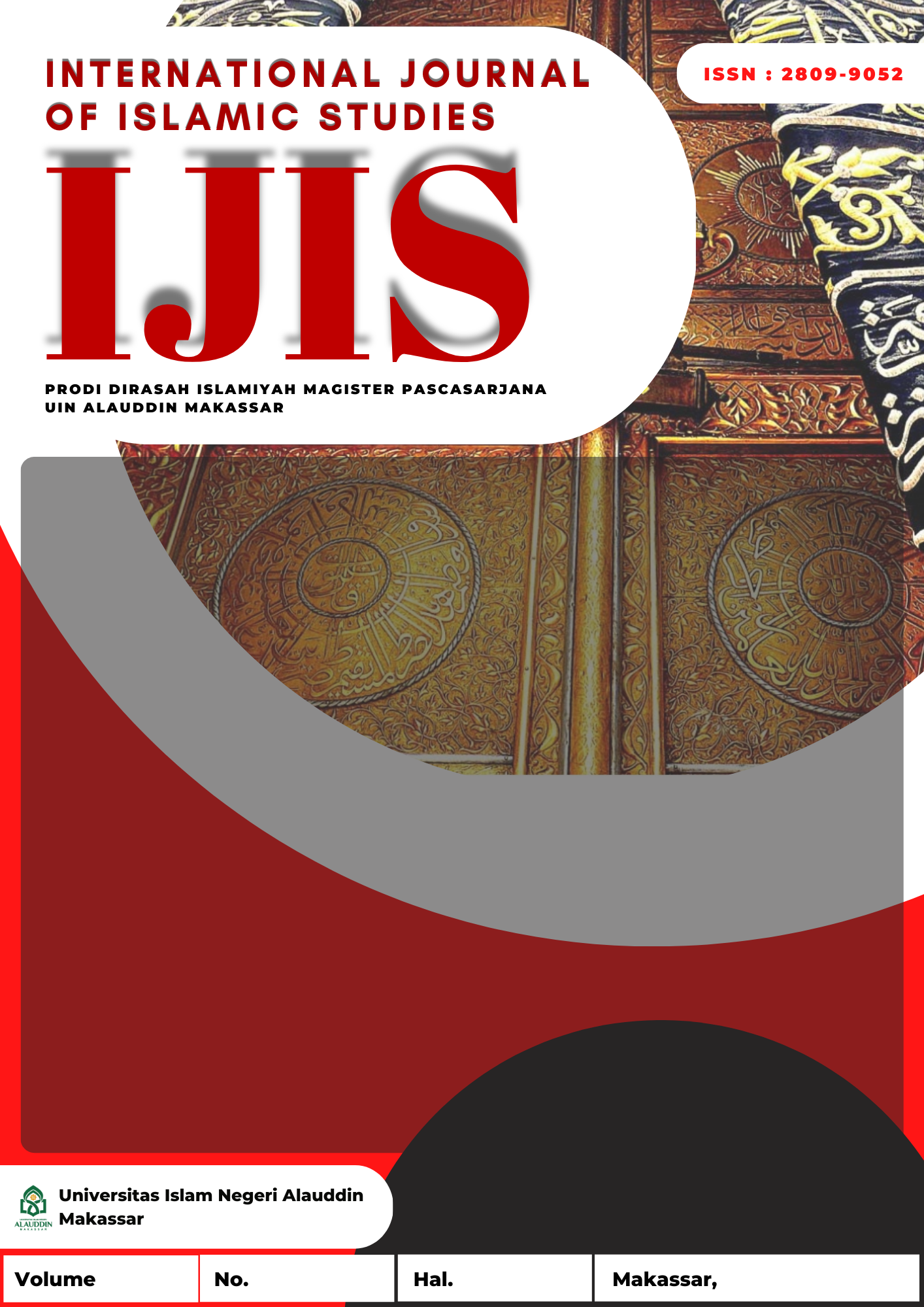EFFORTS TO PREVENT DIVORCE BY JUDGES AT THE BARRU RELIGIOUS COURT (PERMA ANALYSIS NUMBER 1 OF 2016 CONCERNING MEDIATION PROCEDURES IN COURTS) PERSPECTIVE OF ISLAMIC LAW
Abstrak
Overview Divorce cases at the Barru Religious Court have increased significantly from year to year, increasing by around 20% each year, the majority being filed by the wife. the factor that causes the majority is the existence of continuous disputes and quarrels followed by reasons to leave one of the parties, while the other reasons are only a small part. Efforts to prevent divorce by judges at the Barru Religious Court in the form of mediation have been in line with the provisions of Perma No. 1 of 2016 concerning Mediation, at each stage of mediation various efforts have been carried out, including: at the Pre-Mediation stage, Advisory was carried out by the Panel of Judges Examining the Case, at the Mediation stage, efforts were made in the form of: a. Creating a comfortable and conducive atmosphere, sometimes accompanied by jokes, b. Actively listen to the problems expressed by each party, c. Responding and clarifying the intentions of the parties and bridging the differences between the two, d. Conducting Caucus, e. Show appreciation, and at the Final stage of Mediation, the Panel of Judges gives advice again at each trial. Efforts to prevent divorce by judges at the Barru Religious Court in the form of implementing mediation in the perspective of Islamic law have also been in line with the concepts of Islah and Hakam, and are also in accordance with the Maqasid Syariah principle, namely hifdz al-nasl (keeping offspring).
Referensi
Ashhadie. Zaeni et al, Introduction to Indonesian Law, Jakarta: Rajawali Press, 2016.
Busyro, Maqâshid al-syarîah: Fundamental Knowledge of Understanding Maslahah, East Jakarta: Kencana, 2019.
Hakim, Tips in the Mediation Process, (Jakarta: Kencana, 2018.
KBBI Online, https://kbbi.lektur.id/percepatan, accessed March 13, 2022.
Indonesian Ministry of Religion, Al-Quran and its Translation, Cet. I, Bandung: PT. International Cordoba Indonesia, 2012.
Barru Religious Court Annual Report 2020-2022.
Lis Sulistiani, Siska. Islamic Courts, Jakarta: Sinar Graphic, 2020.
Maradona, A. “Effectiveness of Mediation in Inheritance Cases at the Barru Religious Court Class II”, Thesis, Makassar: Faculty of Law Postgraduate, Indonesian Muslim University, 2021.
Media Madura.com, 17 November 2016 edition. Retrieved 12 August 2022.
Nuraningsih, Alternative Mediation for Settlement of Civil Disputes in Court, Cet. 1, Jakarta: Raja Grafindo Persada, 2011.
Nursyfa. Aulia and Eti Hayati, “Efforts to Prevent Divorce Due to Social Media in a Sociological Perspective” Journal of Sociology of Humanist Education, Volume 5 No. 2. December 2020.
Observation of the List of Mediators at the Barru Religious Court, Barru Regency, August 08, 2022.
Observation of Divorce Case History through the Case Tracing Information System.
Observation of Mediation Facilities and Infrastructure at the Barru Religious Court Class II, from 07 August 2022 to 10 August 2022.
Qudamah, Ibn. Al-Mugni Juz V, Beirut: Darul Fikr, 1984.
Rizem Aizid, Complete Family Fiqh, (Cet. I, South Jakarta: Like Books, 2018.
Soemiyati, Islamic Marriage Law and Marriage Law Number 1 of 1974 concerning Marriage, Yogyakarta: Liberty, 2007.
Sunarto, Muhammad Zainuddin. “Mediation in Maqashid Sharia Perspective: A Study on Divorce in Religious Courts” At-Turāṡ: Journal of Islamic Studies, Volume 6, No.1, June (2019).
Syarifudin, Amir. Islamic Marriage Law in Indonesia, Jakarta, Prenda Media, 2006.
Drafting Team, Encyclopedia of Islamic Law, Cet. 1st, Jakarta: PT. Intermansa, 2007.
Usman, R. Mediation in Courts in Theory and Practice, Jakarta: Sinar Graphic: 2012.
Wikipedia, Districts and Villages in Barru Regency, https://id.wikipedia. org/ wiki/List of sub-districts and_kelurahan_di_Kabupaten_Barru, accessed on 03 August 2022.
Wikipedia, Population Number and Gender of Barru Regency, https://barrukab.bps.go.id/indicator/12/29/1/nomor-penikut-menurut-gender.html, accessed on 12 August 2022.
Wirawan, Conflict and Conflict Management Theory, Applications and Research Jakarta: Salemba Humanika, 2009.
Interview
Interview with Salmirati, S.H., M.H., Head of the Barru Religious Court, Barru Regency, August 10, 2022.
Interview with Syahruddin, S.H.I., M.H., Deputy Chairperson of the Barru Religious Court, August 18, 2022.
Interview with Muhammad Rijal Manggaukang, S.H.I. M.H., Judge of the Barru Religious Court, Barru Regency, 08 August 2022.
##submission.copyrightStatement##
##submission.license.cc.by-nc-sa4.footer##Authors who publish with this journal agree to the following terms:
1) Authors retain copyright and grant the journal right of first publication with the work simultaneously licensed under a Creative Commons Attribution License that allows others to share the work with an acknowledgement of the work's authorship and initial publication in this journal.
2) Authors are able to enter into separate, additional contractual arrangements for the non-exclusive distribution of the journal's published version of the work (e.g., post it to an institutional repository or publish it in a book), with an acknowledgement of its initial publication in this journal.
3)Authors are permitted and encouraged to post their work online (e.g., in institutional repositories or on their website) prior to and during the submission process, as it can lead to productive exchanges, as well as earlier and greater citation of published work (See The Effect of Open Access).







